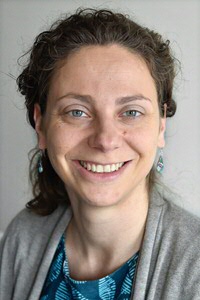Bettina Reitz-Joosse receives ERC Starting Grant

Dr Bettina Reitz-Joosse, associate professor of Latin Language and Literature, has received an ERC Starting Grant for the project FACERE. Roman Making and its Meanings: Representations of Manual Creation in the Literature and Visual Culture of Imperial Rome. The 1.5 million euro grant is awarded to excellent researchers to promote pioneering research in Europe.
‘Making’
How did the Romans respond to the objects and the buildings surrounding them? The project FACERE (Latin for ‘making’) proposes a new way of approaching this question, by studying Roman ideas about processes of manual creation.
‘The way an object is created has an impact on the value we attach to it and on how we interact with it’, says Reitz-Joosse. ‘For example, today, we consider a hand-painted vase more special than a mass-produced one, and we feel more comfortable when we buy clothes that have been manufactured in an ecologically responsible way’. But such attitudes are culturally specific. That is why this research project asks how the inhabitants of the Roman Empire thought about processes of making. ‘Which ethical or aesthetic values did they attach to these processes? For example, how did they conceive of the interaction between man and nature in the context of creation processes? And what ideas did they hold about people who worked with their hands?’ adds Reitz-Joosse.
To answer these questions, a team of researchers under her direction will analyze the ancient Roman discourse on making. By studying literary texts in Greek and Latin and Roman visual culture, the researchers can map out how Romans thought, felt, and talked about creating objects. In doing so, FACERE will open up new ways of understanding of Roman attitudes towards the material world.
| Last modified: | 18 July 2022 11.38 a.m. |
More news
-
12 March 2025
Breaking news: local journalism is alive
Local journalism is alive, still plays an important role in our lives and definitely has a future. In fact, local journalism can play a more crucial role than ever in creating our sense of community. But for that to happen, journalists will have to...
-
11 March 2025
Student challenge: Starting Stories
The Challenge Starting Stories dares you to think about the beginning of recent novels for ten days.
-
11 March 2025
New: Sketch Engine, tool for language research
Sketch Engine is a tool for language research, which can also be used for text analysis or text mining.
